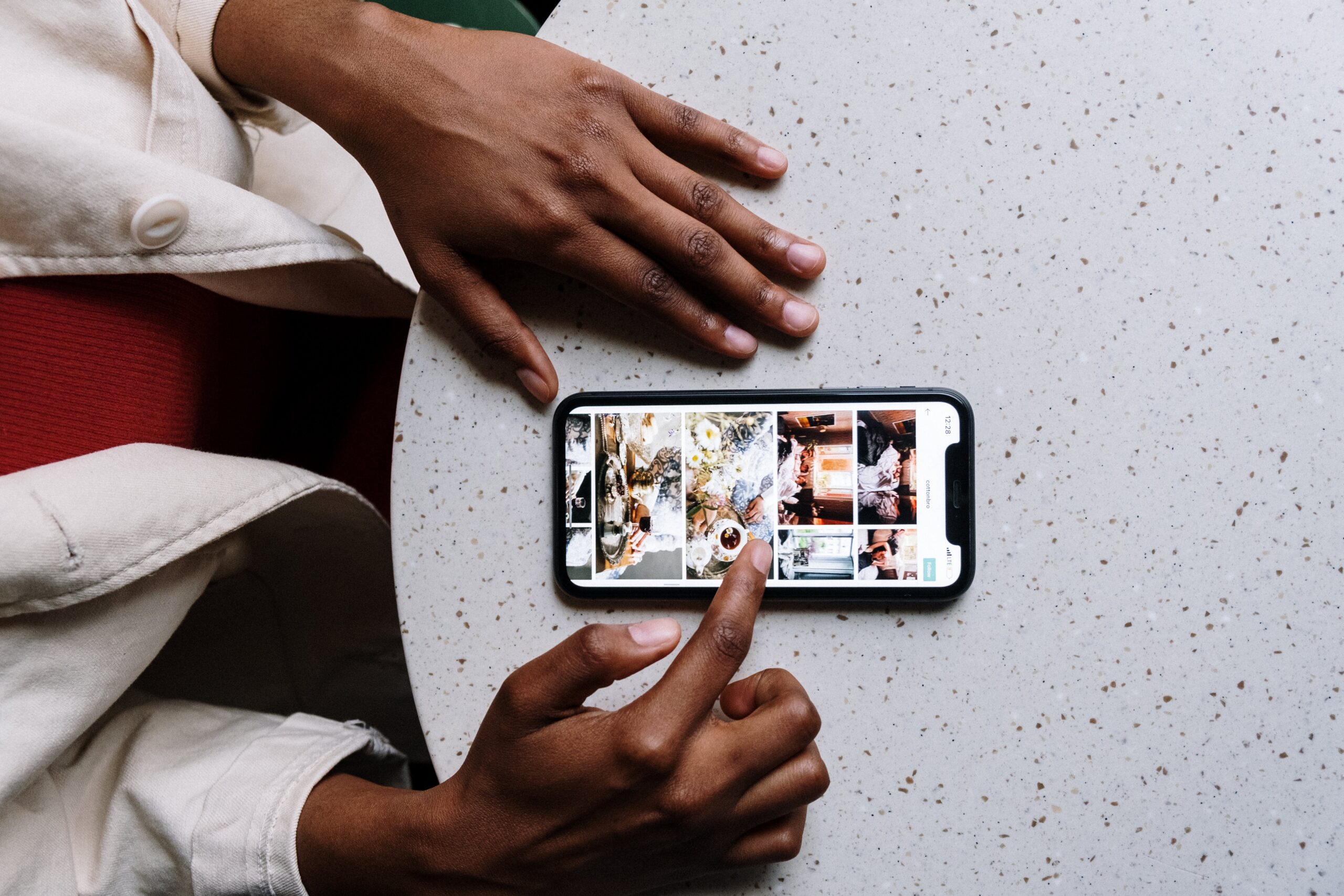By Diana Mbugua
Nairobi, Kenya: In the interconnected world of today, where the digital realm intertwines seamlessly with our daily lives, a dark and insidious threat lurks—sextortion. A portmanteau of “sex” and “extortion,” sextortion is a harrowing form of exploitation that shatters lives and preys on the vulnerability of individuals. This story seeks to shed light on the multifaceted nature of sextortion, unraveling its intricate web of coercion and manipulation and the profound impact it leaves in its wake.
At its core, sextortion involves the malicious use of sexually explicit content to coerce, intimidate, or exploit individuals. This can seem like a threat to disclosing private photos without permission, frequently coupled with requests for cash, products, or services. Ensnared in a terrifying situation, the victims struggle not only with the breach of their privacy but also with the psychological and emotional harm inflicted by their attackers.
Meet Queentah Naliaka Wambulwa, a resilient 27-year-old, an accomplished author and psychologist, and the visionary founder behind the Girls for Girls Africa mental health foundation. Queentah, the eldest of four siblings, has not only triumphed over life’s challenges but emerged as a beacon of strength for others.
Her story takes a distressing turn into the realm of revenge porn, a cruel manifestation of sextortion where intimate images or videos, shared consensually during a relationship, are callously weaponized and disseminated without the depicted individual’s consent. In 2018, after seven years of companionship, her ex-boyfriend violated the trust they had built, exposing her explicit pictures to the public.

Queentah’s journey began in high school, where she met her boyfriend, and their young love blossomed. Despite her parents’ cautions, she was deeply enamored, oblivious to the impending betrayal. Post-high school, she ventured to Mombasa, pursuing a degree in maritime and logistics at the Technical University of Mombasa.
“We were still in love, but then it became a long-distance relationship. This man would take care of me, including paying my bills. Our parents had known us because we come from the same village, and having dated for a while, they had accepted the relationship. Since our relationship was now long-distance, every now and then he would ask me to send him pictures of myself, and out of loyalty, I did.” She admits
Driven by loyalty and trust, Queentah exchanged intimate photos and videos with her partner throughout her first year of college in 2016. Over time, these moments faded from her immediate consciousness. In 2018, a visit to Nairobi took an unexpected turn.
“I found a woman in bed with him, and of course that really crushed me. I went through depression. It was so bad. I was even suicidal. When I went to the psychiatric ward, I started my foundation, the Girls for Girls African Mental Health Foundation.” Queentah explains.
In that process, Queentah tried to vie for the school president. While Queentah’s attempt to become the school president was unsuccessful, her dedication to mental health advocacy gained widespread attention. Her struggles with depression and the impactful work of her foundation became subjects of local media coverage.
The pinnacle of her advocacy coincided tragically with a moment of profound betrayal. In October 2018, a local daily featured an article on Queentah’s mental health initiatives. The very next day, her ex-boyfriend callously unleashed the private images she had entrusted to him, thrusting her into the public eye in a deeply violating manner.
“He had posted the pictures on different Facebook platforms, different family groups, Telegram, literally everywhere. So I was bullied, blogs were written, it was really crazy, I was suicidal, but my family was very close to me, and of course, I sunk into depression again. You can imagine your nudes in public, and we come from the same village,” she says.
Queentah went to therapy and went back to school to study psychology. She says the women around her were very supportive and encouraged her. Though it was hard, she kept believing in herself. She remembers going to the police to seek justice, but they in turn blamed her for sharing her pictures, which made her halt her pursuit of justice.
“I realized that there were many other survivors of sextortion coming out to talk about it, and looking at the laws of Kenya, there is very little being done. Imagine with all that I endured; if this guy was to compensate, he would only pay Ksh 200,000.” She says.
Queentah compared the compensation for such a crime to the infringement of music copyright laws, which, according to the Kenya copyright board, include a maximum of KSH 800,000, a maximum of a custodial sentence of up to 10 years, or both fines and a custodial sentence.
She then decided to start a petition to change the revenge porn laws in Kenya to have perpetrators pay more fines and get more years in prison. “You know, like five years, and also look at the survivor’s well-being because a lot of times people pay attention to the physical violence as opposed to the psychological and emotional violence, which is something that can really traumatize you.”
According to Queentah, it’s important to have a community that still supports survivors after an incident such as revenge porn. She says perpetrators are slowly trying to amuse women through online platforms, which is something that one has to constantly call out and give survivors voices and platforms to tell their stories.
“He had me so bad, and you see, in the African context, a woman’s dignity is so much deserved, my mom broke down and cried. She knew my future had been ruined. No getting a husband, et al., because the internet never forgets, and those were some of the insecurities that cropped in.” She laments.
The most common type of sextortion in Kenya is revenge porn and webcam blackmail. Cases of revenge porn may stem from relationships gone sour where explicit content shared in confidence is weaponized against individuals. Whereas webcam blackmail occurs when someone gains control over a victim’s webcam and captures compromising footage, which is then used as leverage for extortion.
With the rise of online communication platforms, webcam blackmail can exploit individuals during private video interactions, leading to threats and demands for money or further explicit content.
There is also online harassment, which involves the persistent, unwanted targeting of individuals through various online channels, often with the intent to intimidate or coerce. Social media platforms and online forums can become breeding grounds for harassment, where personal information and explicit content may be used to manipulate victims.
Some of the tactics used by perpetrators in Kenya include:
Social engineering tactics may involve gaining trust through fake profiles, posing as someone known to the victim, and extracting sensitive information that can later be used for extortion.
Phishing: Perpetrators may employ phishing techniques to gain access to personal accounts, including email or social media, to obtain explicit content or personal information.
Hacking can occur through vulnerabilities in online security, leading to the unauthorized access and theft of explicit content stored on personal devices or cloud services.
The law
In 2022, the Kenyan government launched the National Cybersecurity Strategy as a roadmap to address new challenges and emerging threats in the cyber domain, including sextortion. The strategy aimed to intervene in reviewing and amending cybersecurity policies, laws, regulations, and standards.
As of right now, three legal laws have been passed to combat revenge pornography. According to Section 37 of the Computer Misuse and Cybercrime Act 2018, a person who transfers, publishes, or disseminates, including making a digital depiction available for distribution or downloading through intimate images through a telecommunications network or through any other means of transferring data to a computer, the intimate or obscene image of another person, commits an offense and is liable, on conviction, to a fine not exceeding two hundred thousand Kenya shillings, imprisonment for a term not exceeding two years, or both.
As an alternative, the victim may, in accordance with the 2010 Kenyan Constitution, file a petition for damages for invasion of privacy. Article 31(c) of the 2010 Constitution provides for the right to privacy over information relating to one’s family or private affairs, which in this case protects one’s intimate images from being unnecessarily required or revealed.
Furthermore, Section 2 of the Data Protection Act of 2019 (DPA) defines personal data as any information relating to an identified or identifiable natural person shared online without consent. In addition to showcasing the victims’ biometric information, such as their facial prints, the pictures occasionally include personal information about them, like names and connections to their social media profiles. Although the offender may face consequences from a civil or criminal lawsuit, the private photos may not be taken off the internet unless a removal order is also requested.
According to a research study published by researchgate.net dubbed “Revenge Pornography on the Internet: A Case of Social Media,” women are the most affected by revenge porn. In the study, where a range of social media platforms such as Facebook, Twitter, and Telegram were included, a total of 200 cases of revenge porn were observed across the various platforms. Out of these, 198 cases involved female victims, while two involved male victims.

Queentah is one of the few courageous women who have been able to voice out the vice. She says that in relationships, people have the right to do however they want with their bodies, but the recipient should always respect the sender and keep it private. “People who are in a long-distance relationship may find it easier to show love in that manner.” She adds.
If one has gone through such a situation, she advises professional therapy and finding a friend who you can talk to. It is also important to be kind to yourself, despite the humiliation that comes with being shamed in public.
“I remember crying a lot at that time, and it really helped me release some energy. Because people will talk about your body and put you down. People will judge you, however, so the biggest comeback is for you to love yourself.” She concludes.














